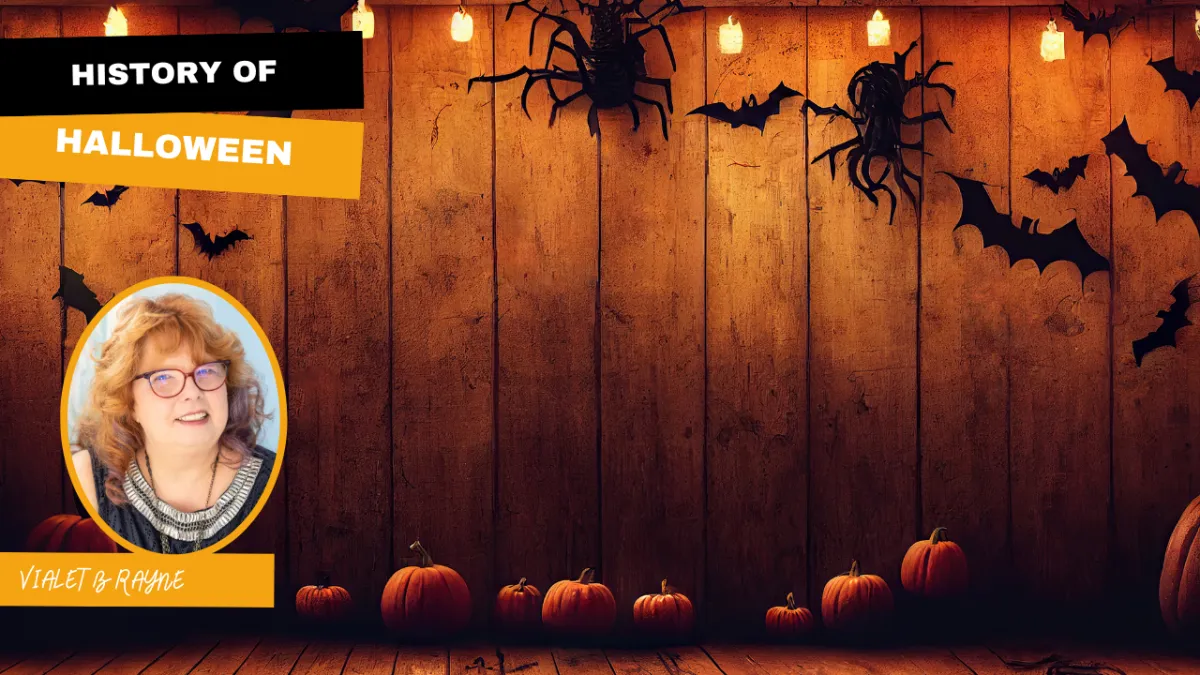
The History of Halloween and Samhain: Honoring the Past, Celebrating the Present
The History of Halloween and Samhain: Honoring the Past, Celebrating the Present
As October’s chill settles in and the veil between the worlds grows thin, we are drawn into one of the most mystical and meaningful times of the year: Halloween. But long before jack-o’-lanterns glowed on porches or costumed children knocked on doors for candy, this season marked a sacred festival known as Samhain (pronounced sow-in). Rooted in ancient Celtic tradition, Samhain holds deep spiritual significance and continues to influence how we celebrate today.
Samhain: A Festival of the Ancients
Samhain originated over 2,000 years ago with the Celts of Ireland, Scotland, and Northern France. It was one of the four major Celtic fire festivals and marked the end of the harvest and the beginning of the dark half of the year. The Celts believed that on the night of October 31st, the boundary between the living and the spirit world dissolved, allowing ancestors, spirits, and fae to cross into our realm.
To honor and protect themselves from these visiting spirits, they lit bonfires, wore masks and costumes, and left offerings of food and drink. It was a time to reflect on the cycles of death and rebirth, to release what no longer served, and to connect with the wisdom of the ancestors.
From Samhain to Halloween: The Evolution
When Christianity spread across Celtic lands, the Church sought to replace pagan festivals with Christian holidays. In the 7th century, All Saints’ Day (also called All Hallows’ Day) was moved to November 1st, and All Hallows’ Eve, later shortened to Halloween, fell on the night of October 31st—aligning with Samhain.
Despite the Church’s efforts, many of the old customs persisted and merged with Christian practices. Over time, the mystical and sacred transformed into the spooky and playful:
Jack-o’-lanterns evolved from Celtic turnip carvings meant to ward off evil spirits. Immigrants to America later used pumpkins, which were more abundant.
Trick-or-treating likely originated from the medieval practice of “souling,” where the poor would go door to door offering prayers for the dead in exchange for food.
Costumes and masks continue the ancient tradition of disguising oneself from spirits and fae that wander on Samhain night.
Modern Celebrations: Halloween and the Return to Spirit
Today, Halloween is celebrated widely as a secular holiday, filled with costumes, haunted houses, spooky movies, and candy. But beneath the surface, many spiritual communities are reclaiming the deeper meaning of this time. Samhain has experienced a revival, especially among modern Pagans, Wiccans, Druids, and spiritual seekers.
Modern Samhain rituals might include:
Honoring Ancestors: Creating altars with photos, candles, and offerings for those who have passed.
Reflection and Release: Holding fire ceremonies or journaling rituals to let go of the old and set intentions for the dark season ahead.
Divination: Using tarot, runes, or scrying to gain insights from the spirit world.
Silent Suppers: Hosting a meal in silence, with a place set for ancestors to join in spirit.
Samhain reminds us that death is not an end but a part of the sacred cycle, and that we are always connected to those who came before us. It’s a time to pause, reflect, and honor the unseen.
Weaving the Past into the Present
Whether you celebrate with costumes and candy, sacred ritual, or both, Halloween and Samhain offer a chance to blend fun with reverence, laughter with legacy, and mystery with memory. These traditions invite us to face the shadow, to honor our roots, and to prepare for the quiet, inward journey of winter.
As the wheel turns, may we remember that this season is more than spooky fun—it is an opportunity to connect with the sacred rhythms of nature, the wisdom of the ancestors, and the magic that stirs just beyond the veil.

